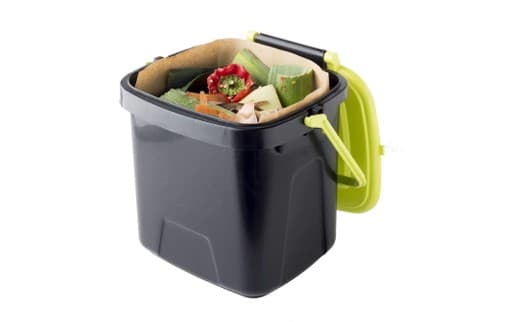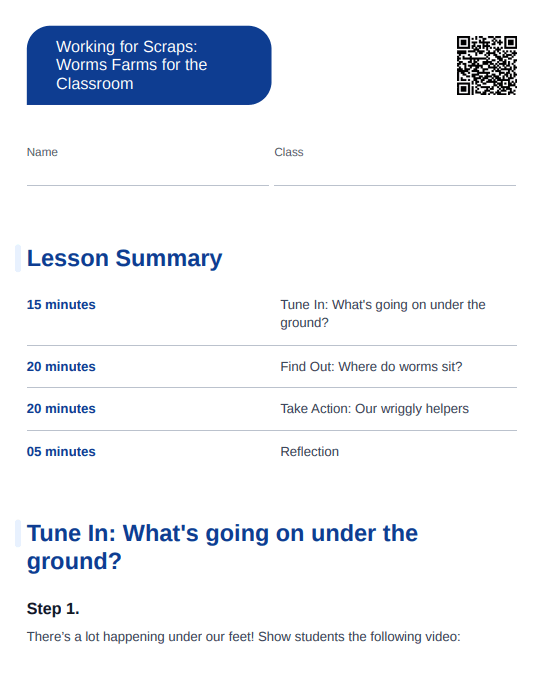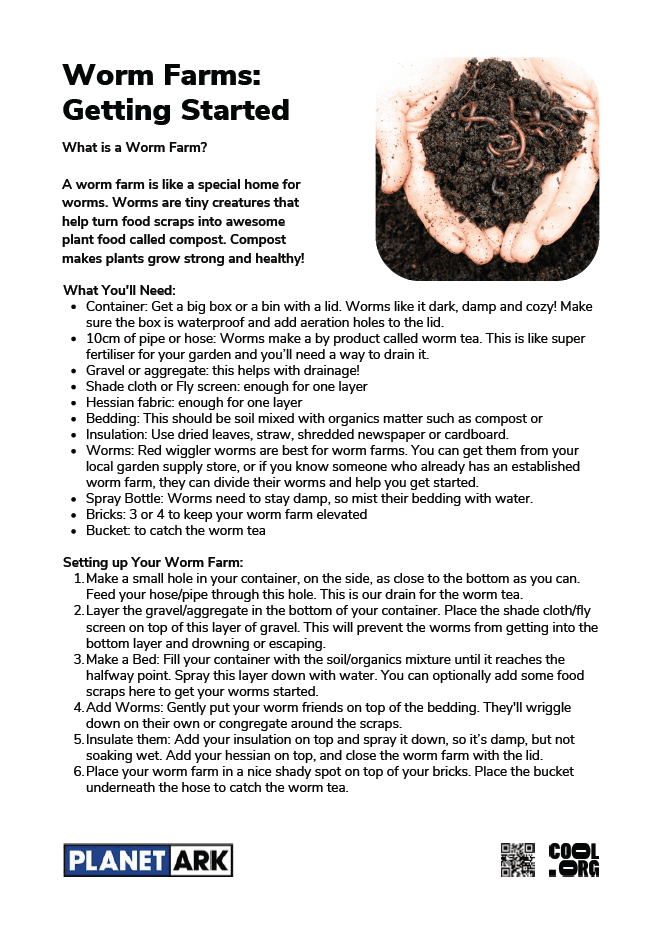Learning intentions:
Students will...
- explore how earthworms fit into the food chain as decomposers and producers.
Success criteria:
Students can...
- describe food chains and where worms fit as decomposers
- discuss feeding relationships, identifying that all living things need food.


